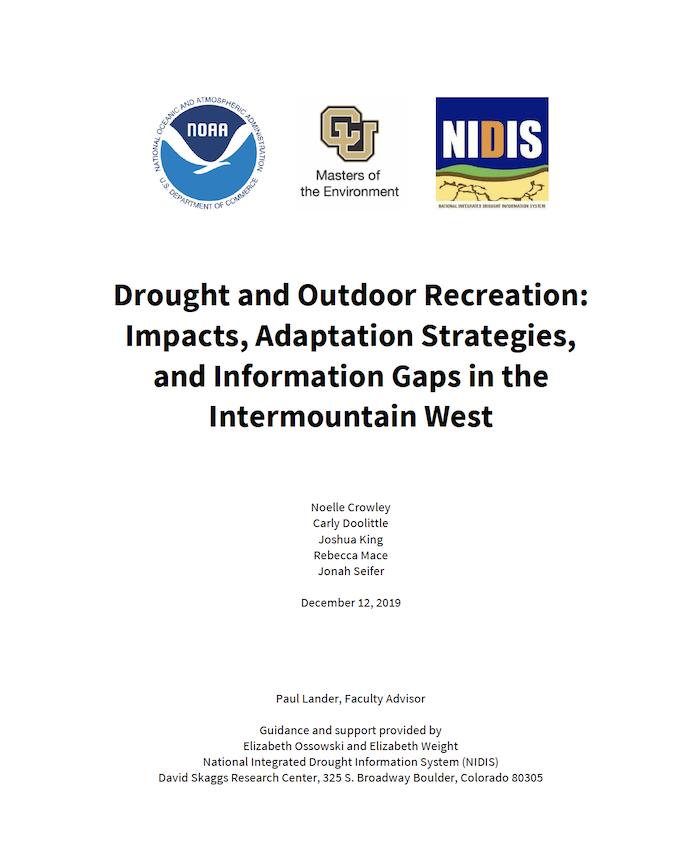Drought Impacts on the Intermountain West Outdoor Recreation Industry

Outdoor recreation is a major contributor to the Intermountain West’s economy, but the future viability of many businesses—particularly small businesses—in the industry is threatened by their drought vulnerabilities and the region’s projected increases in drought severity and frequency.
In 2019, NIDIS partnered with the University of Colorado’s Masters of the Environment Graduate Program to research drought information needs of the outdoor recreation industry in the Intermountain West drought early warning system (DEWS), with the goal of addressing information needs and strengthening the industry’s drought resilience. While the project focused on the Rocky Mountain states, much of the information presented can apply to other regions.
For this project, Masters of the Environment graduate students worked with NIDIS to research drought impacts on and information needs of water-based outdoor recreation businesses, with a focus on ski resorts, snow-based sports (e.g., dog sledding, Nordic skiing), lake-based sports (e.g., boating, paddle boarding), fishing, rafting, and small retailers.
Between May and August 2019, 112 water-based outdoor recreation businesses (ski resorts, snow-based, fishing, rafting, lake-based, and small retailers) were interviewed and surveyed to determine how drought impacts their operations, adaptation strategies employed to mitigate negative drought impacts, and drought information needs to reduce the vulnerability of the industry.


